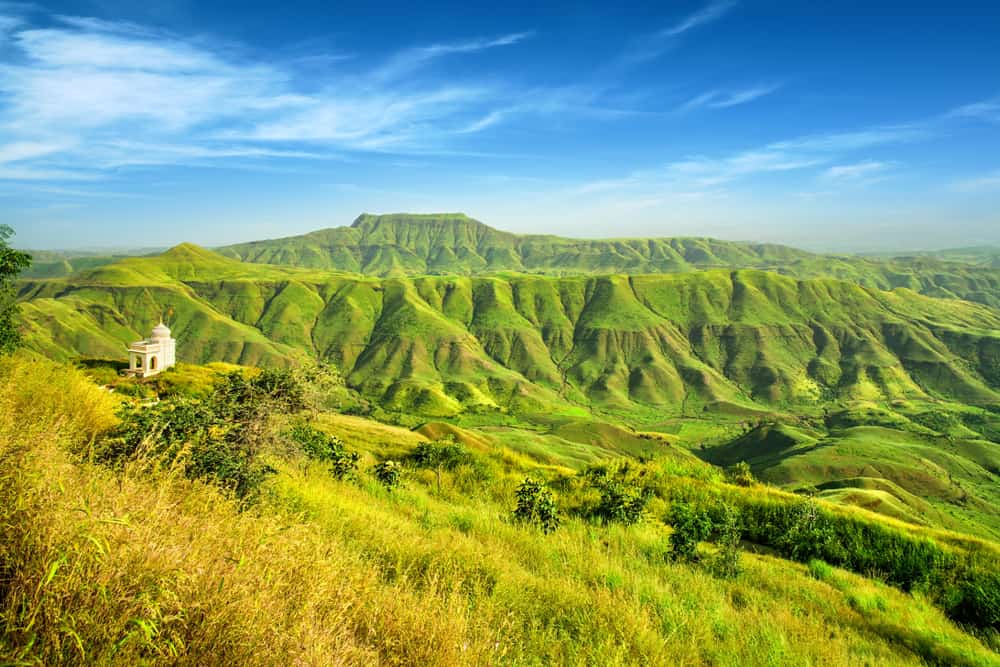In the post-Covid world, tourism has a new face. It is responsible, sustainable, inclusive and immersive. Not only do tourists want to travel to less crowded places, they want more meaningful interactions with locals and appreciate their culture and lifestyle. Madhya Pradesh Tourism Board’s Rural Tourism Programme could not have come at a better time. The target was to make tourism destinations friendly through a cultural experience-based tourism which involved local communities.
MP Tourism Board launched the Rural Tourism Programme in 2018. Covid slowed progress a bit but the work went on. The work first started in about 10 villages on a pilot basis. Villages close to prominent tourist sites, like Orchha, Khajuraho, Panna National Park and Sanjay-Dubri National Park, were initially selected. Seeing positive results, the scheme has been extended to many more villages.
Madhya Pradesh’s pioneering rural tourism project
MP Tourism Board has launched its Rural Tourism Project under the auspices of the Madhya Pradesh Responsible Tourism Mission. Under the Rural Tourism Project, 100 villages across MP have been identified with the goal of developing them as Tourism Villages.
As per the scheme, the state has been divided into six key cultural experience regions. Baghelkhand, Bundelkhand and Chambal in the north and northeast apart from their cultural specialities, also showcase the essence of village life and culture. On the other hand, Malwa, Nimar and Mahakaushal in the west and south showcase the unique culture of their tribal and indigenous communities.
The village experience in Madhya Pradesh is like no other. Tourists get to stay in comfortable homestays created especially for them. They go on excursions in and around the village, rejuvenating themselves in a fresh, clean environment, besides experiencing the local culture in an immersive manner.
The Rural Tourism Programme is being implemented in 60 villages in the first phase and 40 in the second phase over three years, totalling 100 villages in all. This project gives the tourist the most authentic and ground-breaking rural experience through activities like bullock cart rides, farming and cultural experiences and the opportunity to stay in homestays in rural areas to generate employment and alternative business opportunities for rural communities.

KEY FEATURES OF THE PROJECT
The main elements of MP’s Rural Tourism Project are as follows:
Convenient stay facilities for the tourists in the villages
For this, families which want to set up homestays in the village are identified. For the construction of homestays, some financial support is provided under the RGSA scheme of the Ministry of Panchayati Raj, GoI. In every village, approx. 10 families are being selected for the construction of the homestays with the assistance of the village panchayat and assembly. The intention is to provide a convenient stay for tourists, without which rural tourism cannot take off. There is attention to detail, in terms of linen quality, human touch, a clean bathroom and good quality amenities. To ensure quality control, the Tourism Board monitors everything closely at all stages. After construction is complete, test guests stay and give feedback.
Local excursions
Under this, tourists visiting the village are given village tours, are familiarised with typical village activities and taken on nature walks by the local youth who have been selected and trained for this. This is generating employment at the local level. To ensure success, villages with tourism potential and exceptional natural beauty have been selected for the programme.
Local arts and crafts
MP’s villages have been repositories of art and craft since time immemorial. This unbroken tradition continues to this day. But it is often observed that craftspersons are not able to get the right price for their products. This has discouraged the younger generation from taking up the craft. Keeping this in mind, youth are being identified and trained to develop a variety of products which can be sold as souvenirs, so that age-old skills are not lost. The souvenirs will be created keeping popular demand and market viability in mind. To create these responsible souvenirs, training cum production centres are being set up in villages.
Local cuisine and sports
Visitors will be introduced to the local cuisine and indigenous sports of the different regions of the state.
Skill development
Local youth are being trained in hospitality or tourism based on their interests and requirements. In this way a large number of youth can be integrated into tourism and open new employment opportunities for them. Apart from indulging in tourism-related services and operating homestays in the villages, they can also seek employment elsewhere with their new-found skills.
Preserving the environment
One of the most important goals of the Rural Tourism Project, apart from increasing the arrival of tourists, is to incentivize the protection of the local environment and habitat. Tourists often carry things with them that can be harmful to the fragile local ecosystem. To deal with this, the idea is to collaborate with the local populace for activities at the village level that help preserve the environment like planting trees, keeping the environs clean, proper processing of trash, etc.
With the improvement in the Covid situation, the tourists have already planned their holidays. However, the pandemic has brought about a change in the mindset of tourists, who now want to go to uncrowded destinations. This is a shot in the arm for rural tourism.
Rural Tourism has the potential to accelerate the country’s development and attain the objective of an Aatmanirbhar Bharat. It is truly the future of tourism.
Credit: Source link

